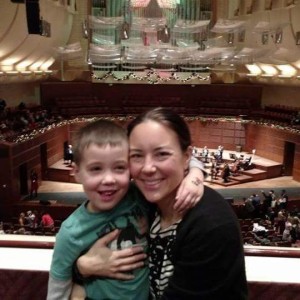Contributed by Special Guest Writer, Anne Hawkins
I can’t remember a time when I didn’t love to read. In elementary school, I read books about girls who always managed to get themselves in trouble – books like Ramona and Pippi Longstockings. Though I never gave it much thought, it made sense that I was drawn to books about characters who reminded me of me. As I grew older, my almost frenetic reading pace mirrored the urgency I felt to better figure out who I was and my place in the world.
I imagine like anyone, I struggled to develop my identity – but with constant reminders that no matter how I viewed myself, others felt that I did not quite belong. My Japanese grandmother never wasted an opportunity to tell me that I looked like my white father, while I was asked on an almost daily basis by the white people I grew up around, “What are you?”
I never knew what to say in either situation. I was sure if I kept reading I would find someone who would say it for me. Before high school, the only book I recall reading by an Asian-American writer was Farewell to Manzanar. That book, along with Sadako and the Thousand Paper Cranes, had a profound impact on my political views, but I hardly identified with the life circumstances of the main characters.
In high school I stumbled upon Amy Tan’s Joy Luck Club. The Chinese-American daughters in the book navigated two cultures, two languages, and two sets of often conflicting expectations. They weren’t me, but they were the closest I’d felt to characters who lived the tensions I had such difficulty articulating. Suddenly, I knew there was more out there that would get me closer to what I was looking for. And so I kept reading – and started asking for recommendations.
Someone recommended Kaui Hart Hemmings’ The Descendants to me because my family is from Hawaii and it’s set in Hawaii; I enjoyed it. Someone recommended a Kazuo Ishiguro book to me because he’s from Japan (though raised in Britain) – I went on to love all his novels. My aunt got a little closer and recommended Barry Eisler’s John Rain series to me, which features a half-Japanese assassin. I certainly don’t identify with the assassin life, but Rain struggles with his mixed-race identity, even undergoing plastic surgery to make himself look more Japanese. Then, in anticipation of this blog piece, a friend recommended Patricia Park’s novel Re Jane which features a young half-Korean woman who returns to Korea to better understand her own identity. I had high hopes for this book – finally, the half-Asian fictional soul-mate I’d been in search of all my reading life. But alas, Jane was nothing like me. She never knew her father, and her mother passed away when she was quite young. She was raised in a predominantly Korean-American neighborhood – lost in many ways that had nothing to do with her mixed-race background. Lacking a connection to Jane, I felt more disconnected than I’d felt since I was a kid – which is not a reflection on the quality of the book, only on my unrealistic expectations. When I finished the book, I turned back to The Joy Luck Club.
One of the characters in The Joy Luck Club comments: “I wanted my children to have the best combination: American circumstances and Chinese character. How could I know these things do not mix?” I see that conflict in me – but I also see my life experience in its entirety as profoundly American – mixing races and cultures may not be as cut-and-dried as Tan’s character wanted, but it’s an experience no better or worse than any other. And this is why nowadays when I do feel like answering the question, I say that I am mixed-race. I don’t pick one because I’m not one. I don’t say “half-Asian” because I feel like that ignores that I am also “half-white,” with all the privileges that identity may afford me. I am finally able to see this identity as liberating. We’re all more than our race or ethnicity – even if, like me, it may inform and shape so much. We’re all trying to figure out who we are. But, so many people need us to be one thing that they think makes us easier to understand. To be mixed may raise questions, but it suddenly somehow explains why I am made up of conflicting beliefs and interests. It makes it okay that they didn’t know what I was because, after all, mixing things up is just complicated. For all those years I spent defined by what I was not, it’s suddenly perfectly fine to just be who I am. And someday (especially now with the help of the internet), I’ll find that book with a character who truly understands me.

Bio: Anne Hawkins is a criminal defense attorney in San Francisco, California. She is the daughter of a third-generation Japanese-American mother and a fifth-generation Irish-English-American father. She lives in the Bay Area with her husband and three children. This year, she was thrilled when her son’s preschool teacher read Grace Lin’s Where the Mountain Meets the Moon to his class. Her favorite authors include Amy Tan, Kazuo Ishiguro, Haruki Murakami, and Gail Tsukiyama. Recommendations welcome: annehawk@yahoo.com.
